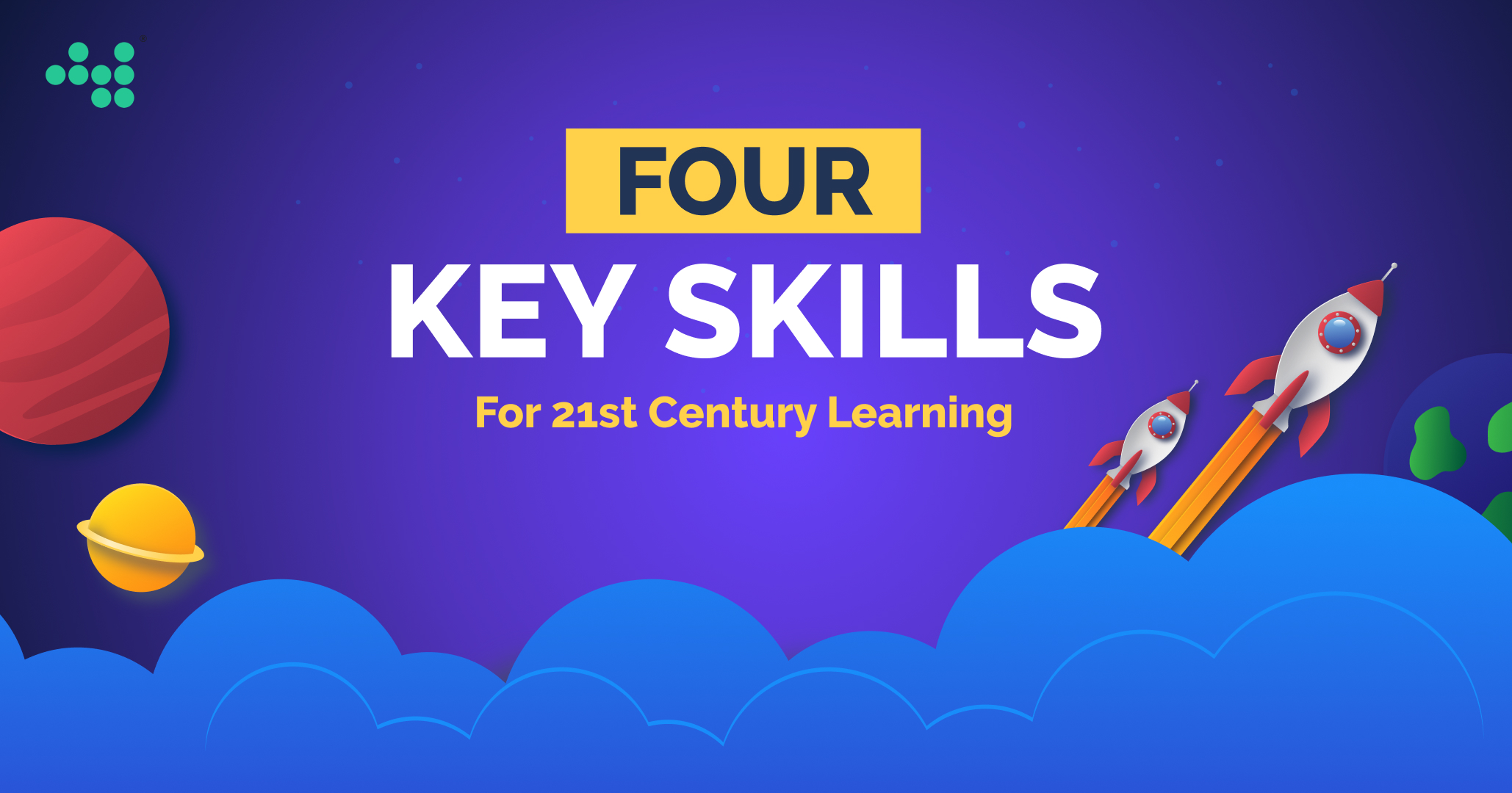Four Key Skills for 21st Century Learning
Education is undeniably going through an immense period of disruption and change. And while the COVID-19 pandemic has intensified this, 21st century skills have become a hot topic of conversation.
When we think about the skills students need for school, college, career and life, teaching by the book simply isn’t good enough anymore. When 85% of all jobs that will exist by 2030 haven't even been created yet, how exactly are students supposed to prepare?
No, we’re not talking about building flying cars or developing the world's first time machine. But as we shift away from an industrial economy towards a knowledge economy, today’s students need to be prepared for a future job role that’s difficult to predict.
The Four C's of 21st Century Skills
The four C's are often considered essential 21st century skills as they're entirely transferable, meaning students can one day pursue a career in something they're genuinely passionate about.
So what are the four C's, and why are they so crucial for future success?
Critical Thinking
Critical thinking, or sometimes referred to as analytical thinking, is the ability to make informed decisions by objectively evaluating several different scenarios to understand things better. This encourages students to think for themselves; it also empowers them to question things and form reflective opinions. With fake news on the rise, students will need to think more critically than ever before and help others think critically too.
Creativity
Creativity is all about thinking outside the box. People often assume that creativity only applies to art, music or English lessons, but it’s a skill that can be used in any career across any industry. Students who use their creativity think in ways others usually don’t, allowing them to solve problems and find solutions to challenges. Furthermore, having a creative mindset can’t be copied by artificial intelligence, and this is a skill more employers will seek from candidates in the future.
Collaboration
Collaboration enables students to build their teamwork skills by learning from and contributing to the learning of others for a shared purpose. Students need to collaborate with others because virtually every job on the planet requires people to work with each other at some point in their lives.
Communication
Practical communication skills are necessary when conveying thoughts and ideas for others to understand. And in the age of digital and text-based communications, there’s never been a more prominent time for students to grasp this skill. While listening, speaking and writing also fall under this category and are considered necessities by employers, text-based communications — SMS, email and social media — generally lack tone, which is essential to understanding the context of someone’s words. Strong communication skills are vital when it comes to big-picture planning and meticulous organisation
With that said, the four C's are very general, and there's no right or wrong way that students should learn them. Our online learning platform is a gateway to grasping these skills through the engaging variety of Live Experiences, Self-Paced Courses and Bite-Sized Videos we create.
Discover how our Broadcast service can bring extra-curricular and future-focused learning directly to your school by visiting the Broadcast website.




